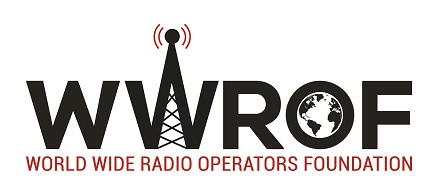
World Wide Digi DX Contest


World Wide Digi DX Contest

Cabrillo refers to a universal log submission format for electronic logs that is widely used by all major contests.
There are two versions of the Cabrillo log file format. The WW Digi DX Contest accepts both Cabrillo v2 and v3 format files. One of the major changes from v2 to v3 was in the way categories are specified. We strongly request that you submit logs using the Cabrillo v3 format if possible.
Below is an example of a Cabrillo v3 file for the WW Digi DX Contest.
START-OF-LOG: 3.0 CONTEST: WW-DIGI CALLSIGN: HC8N LOCATION: DX CATEGORY-OPERATOR: MULTI-OP CATEGORY-TRANSMITTER: TWO CATEGORY-BAND: ALL CATEGORY-POWER: HIGH CATEGORY-MODE: DIGI CATEGORY-STATION: FIXED CLAIMED-SCORE: 8686317 CLUB: NORTHERN CALIFORNIA CONTEST CLUB CREATED-BY: WT4I Contest Tools NAME: BOB SMITH ADDRESS: 100 Main St ADDRESS: OXFORD, TX 65003 OPERATORS: K6AW, W6OTC, W0YK SOAPBOX: Fun contest! QSO: 3595 DG 2019-08-31 1711 HC8N EI00 W1AW FN32 0 END-OF-LOG:
When manually entering Cabrillo header information, please follow the format below. The format for each entry is a key (LABEL:) followed by a space.
START-OF-LOG: 3.0END-OF-LOG:
The intervening lines between the two lines above are:
CONTEST:
CALLSIGN: callsign
CATEGORY-BAND:
The band-category must be one of the following: ALL, 160M, 80M, 40M, 20M, 15M or 10M. If you are entering an all band category, use ALL, otherwise select one of the individual bands shown. If you are entering as a single band but have QSOs on other bands, those QSOs must be included in the log. However, the log will be scored on the basis of your single-band designator in the CATEGORY-BAND line.
CATEGORY-MODE:
CATEGORY-POWER:
CATEGORY-TRANSMITTER:
CATEGORY-ASSISTED:
This item is optional. Not used by WW-DIGI contest.
CATEGORY-STATION:
CLAIMED-SCORE: n [optional]
CLUB: text [optional]
CREATED-BY: text [optional]
EMAIL: text [optional]
LOCATION: [required for US, optional for others]
NAME: text
ADDRESS: text
ADDRESS-CITY:
text
ADDRESS-STATE-PROVINCE: text
ADDRESS-POSTALCODE:
text
ADDRESS-COUNTRY: text
OPERATORS: callsign1 [callsign2 callsign3...]
SOAPBOX: text [optional]
QSO: qso-data
------info sent------- ------info rcvd-------
QSO: freq mo date time call exch call exch t
QSO: ***** ** yyyy-mm-dd nnnn ************* ******** ************* ******** n
QSO: 3595 DG 2019-08-31 1711 HC8N EI00 W1AW FN32 0
000000000111111111122222222223333333333444444444455555555556666666666777777777788
123456789012345678901234567890123456789012345678901234567890123456789012345678901
Explanation of QSO Fields
Each line must begin with “QSO:” followed by a space. The QSO template shows each item at a specific column. WW Digi will accept the fields in any column as long as there is a space between each item.
freq is frequency or band:
mo is mode:
date is UTC date in yyyy-mm-dd form
time is UTC time in nnnn form (0000 – 2359)
call is callsign (only A-Z, 0-9 and / characters permitted)
exch is contest exchange (grid square in the form xxnn)
t is transmitter id. Used to identify RUN1/RUN2 stations in two-transmitter category. It is a single digit of 0 or 1.
Please ensure that your Cabrillo file includes this information. For the Multi-Two category, the last column in the log indicates which transmitter made the QSO, a 0 or a 1.